Super Bowl History and Game Results
Updated: 2025
From the Super Bowl I in 1967 to the 2025 Super Bowl, the NFL has taken us on a wild ride. Fans of pro football have seen legendary performances, career-defining moments, intense finishes, utter sorrow, pure bliss and disgusting blowouts.
The Super Bowl has no true favorites, as everything gets put on the line and it seems every single year, in some weird way, the best team always emerges from the sea of 32 NFL teams.
To get a glimpse of every Super Bowl game ever, let’s take a quick look at what happened in all 54 of them:
Every Super Bowl is recorded via Roman numeral except for Super Bowl 50. Lamar Hunt, who was credited for coming up with the “Super Bowl” name, is also credited for tracking the Super Bowls with Roman numerals. Apparently the Super Bowl logo designers didn’t like the way Super Bowl L would have looked.
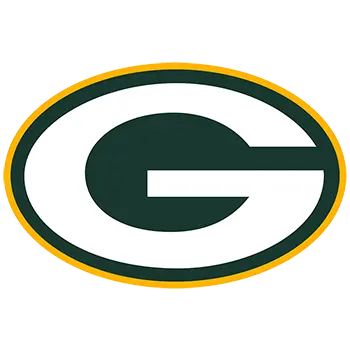 Green Bay Packers
Green Bay Packers
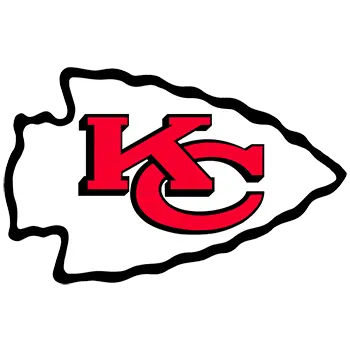 10
10
The first ever Super Bowl is naturally one of the most iconic NFL title games, as it was the first of it’s kind and also showcased legendary head coach, Vince Lombardi. Green Bay entered as 14-point favorites, as they hailed from the more respected NFL (NFC).
Lombardi’s Packers struck first via a Max McGee touchdown, scoring the first points in Super Bowl history. Hank Stram’s Chiefs bounced back and were down just 14-10 at the break, before Bart Starr helped Green Bay pull away and end with a 35-10 blowout win.
- Date: January 15, 1967
- Attendance: 61,946
- Location: Los Angeles Memorial Coliseum in Los Angeles, California
- Super Bowl MVP: Bart Starr, QB, Packers (250 passing yards, 2 TDs)
 Green Bay Packers
Green Bay Packers
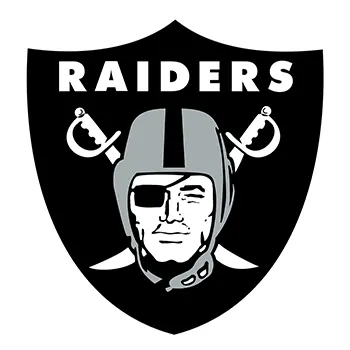 14
14
The Packers reinforced the argument that the NFL was still better than the AFL in 1968, when they got back to the Super Bowl and repeated as world champions. That logic wasn’t necessarily bullet proof, as the 13-1 Chiefs had built up an elite record. On paper, they looked like a stiff challenge for the 9-4-1 green and gold.
The Packers once again opened as favorites (-13.5) and made good on the trust of oddsmakers by dispatching the Oakland Raiders easily, 33-14. Green Bay quarterback Bart Starr wasn’t as prolific as he was the year before, but once again locked up MVP honors.
- Date: January 14, 1968
- Attendance: 75,546
- Location: Miami Orange Bowl in Miami, Florida
- Super Bowl MVP: Bart Starr, QB, Packers (202 passing yards, 1 TD)
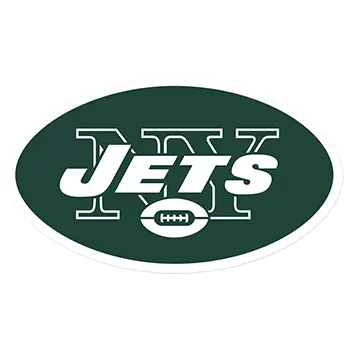 New York Jets
New York Jets
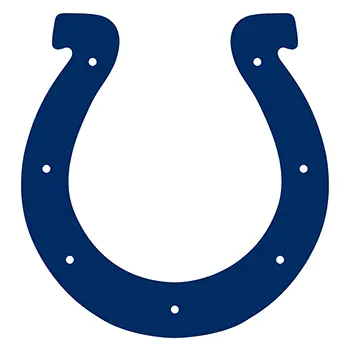 7
7
The NFL finally gave into an improving AFL in 1969, as Joe Namath (aka Broadway Joe) came through on his guarantee to beat a heavily favored (-18) Baltimore Colts team. On top of Namath’s guarantee, Super Bowl III still stands as one of the most iconic NFL title games in history due to the AFL winning their first title in the Super Bowl era.
While Namath ended up being correct about his bold prediction, he didn’t exactly light up the Colts in the league’s third Super Bowl. Instead, the 13-1 Colts made the Jets work for every point they got. New York grinded their way to a 7-0 lead at half-time, and went on to build a commanding 16-0 lead that resulted in a 16-7 win. It wasn’t pretty or dazzling, but Namath made good on his word and the AFL crowned their first Super Bowl champion.
- Date: January 12, 1969
- Attendance: 75,389
- Location: Miami Orange Bowl in Miami, Florida
- Super Bowl MVP: Joe Namath, QB, Jets (206 passing yards)
 Kansas City Chiefs
Kansas City Chiefs
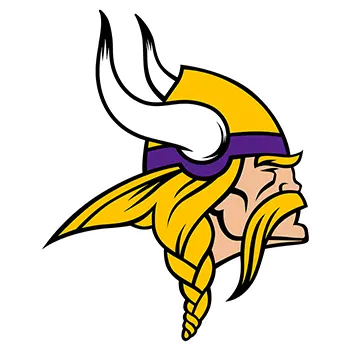 7
7
The AFL made it back to back titles in 1970, as the Kansas City Chiefs returned to the scene of the first Super Bowl and got vengeance by taking down the Minnesota Vikings. Kansas City head coach Hank Stram and quarterback Len Dawson got total vindication in this game, as there remained serious doubt that the AFL was remotely at the NFL’s level. Not surprisingly, the 12-2 Vikings entered as heavy -12 favorites.
Super Bowl IV was arguably a major moment in the event’s history, both because we got an up close and personal look at Hank Stram on the sidelines, and also because the Chiefs proved the AFL was no slouch by evening up the Super Bowl tally, 2-2.
Kansas City leaned hard on their defense in this one, as they jumped out to a 9-0 lead and forced five turnovers en route to an easy 23-7 victory. Len Dawson did just enough on the offensive side for KC and became the fourth straight quarterback to take home the Super Bowl MVP award.
- Date: January 11, 1970
- Attendance: 80,562
- Location: Tulane Stadium in New Orleans, Louisiana
- Super Bowl MVP: Len Dawson, QB, Chiefs (142 passing yards, 1 TD)
 Baltimore Colts
Baltimore Colts
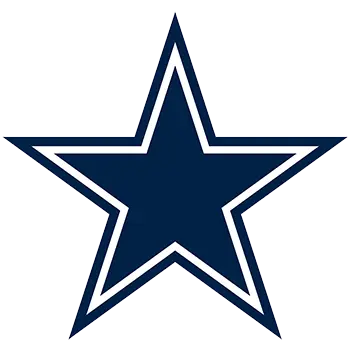 13
13
The fifth Super Bowl in NFL history ended up making history for its competitiveness, as the previous four title games were extremely one-sided. This also marked the first official season where the old AFL had become the current AFC, following the official completion of the AFL/NFL merger. With the merger in place, the Baltimore Colts shifted to the AFC and marched into Super Bowl V with an elite 11-2-1 record.
Waiting for Johnny Unitas and the Colts were the 10-4 Cowboys, who entered as +2.5 underdogs, marking the first time a team from the NFC side started the Super Bowl as anything other than a favorite. Dallas initially looked to be in position to stage the upset, however, as they took advantage of an injury to the legendary Unitas and led at the break, 13-6.
Often referred to as the “Blunder Bowl”, Super Bowl V was at times unwatchable, as both teams struggled to hang onto the football. Dallas and Baltimore turned the ball over a combined 11 times, which still ties for the most in Super Bowl history. Baltimore’s seven turnovers (third most, all-time) were nearly too much to overcome, but a Dallas turnover, ironically enough, gave way to a late field goal and a Colts win. The win not only allowed the Colts to avenge their loss in Super Bowl III, but also handed the AFC side of the league their fourth straight title.
While the Colts won, the Super Bowl MVP ended up being disruptive Dallas linebacker, Chuck Howley. Howley still stands as the only Super Bowl MVP from a losing team.
- Date: January 17, 1971
- Attendance: 79,204
- Location: Orange Bowl in Miami, Florida
- Super Bowl MVP: Chuck Howley, LB, Cowboys (2 interceptions)
 Dallas Cowboys
Dallas Cowboys
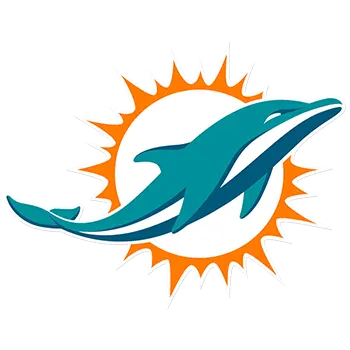 3
3
Dallas fought their way back to the Super Bowl in 1972, as Roger Staubach finally stole the quarterback job from Craig Morton and helped the Cowboys to a 11-3 record. Despite carrying a negative perception of not being able to win “the big one”, the Cowboys entered Super Bowl VI as 6-point favorites over the AFC’s Miami Dolphins.
Miami initially seemed to pose a solid threat to Dallas, as they finished the regular season with a strong 10-3-1 mark and had ripped off eight consecutive victories. Having fended off past Super Bowl mainstays, Kansas City and Baltimore, the Dolphins entered their first ever Super Bowl as a sneaky underdog pick.
The sneakiness lasted until halftime, as Miami was clearly out-played, but hung around at the break, down 10-3. The Cowboys dominated on the ground from there, however, as they put up over 250 rushing yards and held a bruising Miami offensive backfield (80 total rushing yards) in check. Miami also turned the ball over three times, dooming any chance of turning things around in the second half.
- Date: January 16, 1972
- Attendance: 81,023
- Location: Tulane Stadium in New Orleans, Louisiana
- Super Bowl MVP: Roger Staubach, QB, Cowboys (119 passing yards, 2 TDs)
 Miami Dolphins
Miami Dolphins
 7
7
Like Dallas did the year before them, Miami sucked it up and fought back to the Super Bowl in 1973. Their return to the NFL’s biggest stage was a tad more impressive, of course, as Don Shula’s second go-around in the Super Bowl boasted the league’s first undefeated team.
Despite finishing the regular season with an unblemished 14-0 record, Miami actually entered Super Bowl VII as narrow +1 underdogs to the 11-3 Washington Redskins. The Redskins had taken an unconventional approach to winning, as new head coach George Allen loaded his team with veteran players and declared the time to win was “now”. Dubbed the “Over the Hill Gang”, Allen’s veterans ended up making him look like a genius after just a few years on the job, ultimately pushing the ‘Skins into Super Bowl VII.
Once there Washington couldn’t do much, as Miami’s elite defense held them scoreless until one of the most iconic moments in Super Bowl history happened.
Instead of the Dolphins converting a late field goal en route to a likely 17-0 win, kicker Garo Yepremian’s kick was blocked, which led to one of the worst pass attempts in league history and a Redskins touchdown.
Luckily for Miami, the blocked field goal for a score came too late and the undefeated Dolphins were able to stay perfect at 17-0.
- Date: January 14, 1973
- Attendance: 90,182
- Location: Los Angeles Memorial Coliseum in Los Angeles, California
- Super Bowl MVP: Jake Scott, S, Dolphins (2 interceptions)
 Miami Dolphins
Miami Dolphins
 7
7
The great Don Shula continued to add to his legendary career in 1974, when he got his Dolphins back to the Super Bowl for a third consecutive season. Miami (12-2) wasn’t perfect like they were the year prior, but they still came into Super Bowl VIII as 6.5-point favorites over the 12-2 Minnesota Vikings.
Shula was a mainstay in the league’s biggest game at this point, having coached Miami to two previous title games. He left his lasting mark with this second win, however, as Miami dominated the Vikings, throughout. The win got Shula and Miami their second straight Super Bowl win, while also making the Dolphins the first team to repeat as world champions since the Green Bay Packers. The win also gave the AFC its first repeat Super Bowl winner.
Super Bowl VIII was unfortunately never in doubt, as a solid Vikings offense couldn’t capitalize on numerous chances, turning the ball over three times. Fran Tarkenton was able to move the ball for Minnesota, but didn’t punch it into the end-zone until the fourth quarter, when Miami had already built a decisive 24-0 lead.
Running back Larry Csonka was the deciding factor in this game, as he bullied his way to a then-Super Bowl record 143 rushing yards on 33 carries. Csonka fittingly was named Super Bowl MVP, becoming the first running back in league history to win the award.
- Date: January 13, 1974
- Attendance: 71,882
- Location: Rice Stadium in Houston, Texas
- Super Bowl MVP: Larry Csonka, RB, Dolphins (143 rushing yards, 2 TDs)
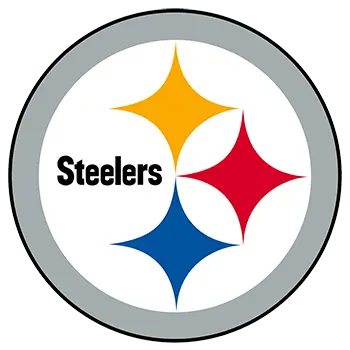 Pittsburgh Steelers
Pittsburgh Steelers
 6
6
Miami’s run in the Super Bowl ended in 1975, when Hall of Fame passer Terry Bradshaw led the 10-3-1 Steelers to their first Super Bowl appearance. Pittsburgh opened Super Bowl IX as the mild 3-point favorites, even with the 10-4 Vikings returning to the big game for the second year in a row and third time in the event’s history.
Super Bowl IX was sold as a clash of elite defenses and it certainly lived up to the hype, as Pittsburgh’s “Steel Curtain” accrued the only scoring (2 points via safety) in a first half that was equally dominated by Minnesota’s “Purple People Eaters”.
The Steelers leaned even harder on their defense in the second half, as they slowly turned a slight 2-0 half-time lead into a 16-6 victory. Neither offense managed to get much done in one of the uglier Super Bowls in league history, but Minnesota’s was done in by Fran Tarkenton’s three interceptions and overall inefficiency.
Pittsburgh quarterback Terry Bradshaw simply wasn’t needed in this defensive battle, as the Steelers crushed Minnesota’s offense and rode running back Franco Harris to a then-record 158 yards on the ground. Harris went on to be named Super Bowl IX MVP.
- Date: January 12, 1975
- Attendance: 80,997
- Location: Tulane Stadium in New Orleans, Louisiana
- Super Bowl MVP: Franco Harris, RB, Steelers (158 rushing yards, 1 TD)
 Pittsburgh Steelers
Pittsburgh Steelers
 17
17
Terry Bradshaw and the Steelers continued what would ultimately only be described as a dynasty, with the Steelers getting back to the Super Bowl in 1976 and repeating as world champions over the Cowboys, 21-17. Pittsburgh came in as a dominant force at 12-2 and after winning the year before, were the easy 7-point favorites over the 10-4 Cowboys.
Dallas still put up a fight against Pittsburgh’s historic “Steel Curtain” defense, as they actually held a 10-7 lead into the fourth quarter. The Steelers then ripped off two touchdowns to take a 21-10 lead before holding on late for a 21-17 win. The Steelers win gave the league it’s third repeat champion (second for the AFC) and was the league’s first title game between two previous Super Bowl participants. It also stands as one of the best games in early Super Bowl history, as Dallas was in position to steal a win until the final moments.
Lynn Swann, who had a key 64-yard touchdown catch in the fourth quarter, racked up a then-Super Bowl record 161 yards through the air to run away with Super Bowl MVP honors.
- Date: January 18, 1976
- Attendance: 80,187
- Location: Miami Orange Bowl in Miami, Florida
- Super Bowl MVP: Lynn Swann, WR, Steelers (4 receptions, 161 receiving yards, 1 TD)
 Oakland Raiders
Oakland Raiders
 14
14
Super Bowl XI featured Fran Tarkenton and the Minnesota Vikings, who entered their third Super Bowl as mild +4 underdogs to John Madden’s Oakland Raiders. Oakland was the easy favorite following an elite 13-1 run through the regular season, while Super Bowl XI marked their return to the league’s title game for the first time since Super Bowl II.
While Minnesota never really made it a game, they impressed by reaching the Super Bowl for a then-record fourth time. That was about all they could muster, however, as Minnesota went down 16-0 at the half and never threatened. After a scoreless first quarter, Oakland’s offense did as they pleased, racking up over 400 total yards in the 32-14 victory.
The story didn’t change from previous years for the Vikings, as a solid defense held things together early, but turnovers doomed an underperforming offense. Legendary quarterback Fran Tarkenton threw two interceptions and the Vikings turned the ball over three times in the crushing defeat.
- Date: January 9, 1979
- Attendance: 103,438
- Location: Rose Bowl in Pasadena, California
- Super Bowl MVP: Fred Biletnikoff, WR, Raiders (4 receptions, 79 yards)
 Dallas Cowboys
Dallas Cowboys
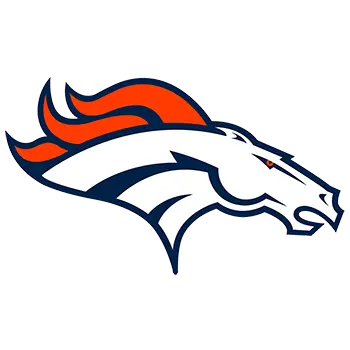 10
10
Dallas (12-2) returned to the promised land in 1980, as Hall of Fame head coach Tom Landry helped the ‘Boys topple the Broncos (12-2) en route to their second world title. Dallas entered their fourth ever Super Bowl as 6-point favorites, despite going up against an elite “Orange Crush” Broncos defense.
This was a very unique game, as Dallas dominated so much defensively that two of their defensive stars – Randy White and Harvey Martin – took home Super Bowl MVP honors. It stands as the only time two players were co-Super Bowl MVP.
Suggesting the Cowboys were elite defensively in this game would be an understatement, as the Cowboys created a staggering 8 turnovers (second most in Super Bowl history) and allowed Denver to complete just eight passes for 61 yards through the air.
Super Bowl XII was special vindication for legendary Cowboys quarterback Roger Staubach, who out-played for Dallas passer, Craig Morton (4 interceptions). Staubach played enough to be deserving of MVP honors, but given the defense’s amazing performance, no one was shocked to see White and Martin exit with the award.
- Date: January 15, 1978
- Attendance: 75,583
- Location: Louisiana Superdome in New Orleans, Louisiana
- Super Bowl MVP: Randy White, DT and Harvey Martin, DE, Cowboy
 Pittsburgh Steelers
Pittsburgh Steelers
 31
31
The AFC got back to their dominant ways in the 1979 Super Bowl, as the Steelers got back to the big game yet again, securing their conference’s 9th league championship. They didn’t get there without some controversy, of course, as they game is historically known as “Black Sunday” due to the Super Bowl spread shifting from -3.5 to -4.5 to -4. The line ended at -4 in favor of Pittsburgh and resulted in oddsmakers losing a ton of money via Super Bowl bets.
While this was a bad Super Bowl for Vegas, it was without a doubt an instant classic and one of the best Super Bowl games for fans in history. The spread suggested a tight affair, and the Steelers (14-2) and Cowboys (12-4) did not disappoint. Dallas entered as the defending world champs, while the Steelers had just been repeat champions a few years prior.
Super Bowl XIII was a shootout from the very beginning, as both teams fired in touchdowns in the first quarter, with the Steelers holding a close 21-14 advantage at the break. Dallas tightened things up with the only score in the third quarter (field goal), which set up an intense final stanza. The Steelers managed to tack on two touchdowns to take a commanding 35-17 lead, but a driven Cowboys team scored two more times to keep the game interesting until the final moments.
Both offenses clicked in this one, as Terry Bradshaw and Roger Staubach combined for seven touchdowns and over 500 yards through the air. Ultimately, Pittsburgh’s offense took over the game late and helped the Steelers win their third Super Bowl title.
- Date: January 21, 1979
- Attendance: 79,484
- Location: Miami Orange Bowl in Miami, Florida
- Super Bowl MVP: Terry Bradshaw, QB, Steelers (318 passing yards, 4 TDs)
 Pittsburgh Steelers
Pittsburgh Steelers
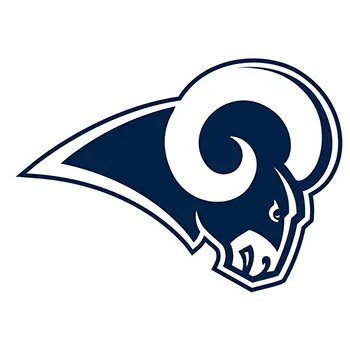 19
19
Bradshaw and co. completed their dynasty run with one more title in 1980, as the 12-4 Steelers returned to the league’s title game to repeat as champions for the second time. The win was historic, as it not only push Pittsburgh’s Super Bowl win total to four, but also gave the NFL it’s first two-time repeat champion.
The final score made Pittsburgh’s fourth NFL title look relatively easy, but the Steelers were actually tested early by a 9-7 Los Angeles Rams team. Pittsburgh would eventually cover their gaudy -10.5 Super Bowl spread, but the Rams were extremely pesky, as they forced Terry Bradshaw into three interceptions and actually led at the break, 13-10.
Super Bowl XIV remained close throughout the game’s first three quarters, with the Rams holding a 19-17 advantage going into the fourth quarter. Bradshaw and company stepped their game up from there, however, as Franco Harris and John Stallworth found the endzone to score the final quarter’s only (14) points.
History doesn’t exactly give the Rams much credit, but they helped make Super Bowl XIV an impressively competitive and thrilling game. Super Bowl XIV made history, as well, with the Rams becoming the first team with just a 9-7 record to make it all the way to the final game of the NFL season.
- Date: January 20, 1980
- Attendance: 103,985
- Location: Rose Bowl in Pasadena, California
- Super Bowl MVP: Terry Bradshaw, QB, Steelers (309 passing yards, 2 TDs)
 Oakland Raiders
Oakland Raiders
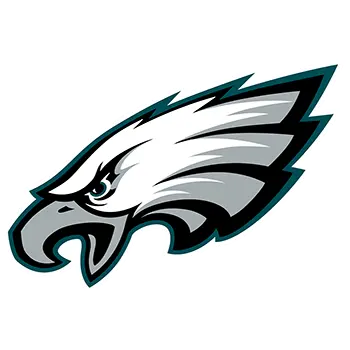 10
10
The Oakland Raiders got back to the Super Bowl in 1981, giving them their third appearance in the NFL title game. The Raiders also made Super Bowl history in Super Bowl XV, as quarterback Jim Plunkett became just the second Heisman Trophy winner to win the big game, while also making Oakland the first Super Bowl champion to emerge out of the wild card round.
The Super Bowl wasn’t quite as kind to the 3-point favored Eagles, who made it to the league’s title game for the first time in franchise history, but were buried by three Ron Jaworski interceptions. Plunkett was sensational on the other side, throwing three scores in leading the Raiders to an easy 27-10 win.
Super Bowl XV made even more history, as Raiders head coach Tom Flores became the first minority coach to lead an NFL team to a championship. Oakland’s title run was emotional and borderline unlikely across the board, as Plunkett began the season as a backup and the team won 9 of its last 11 games just to get into the playoffs. While the game itself wasn’t competitive, Super Bowl XV is remembered as one of the better “feel good” NFL stories in league history.
- Date: January 25, 1981
- Attendance: 76,135
- Location: Louisiana Superdome in New Orleans, Louisiana
- Super Bowl MVP: Jim Plunkett, QB, Raiders (261 passing yards, 3 TDs)
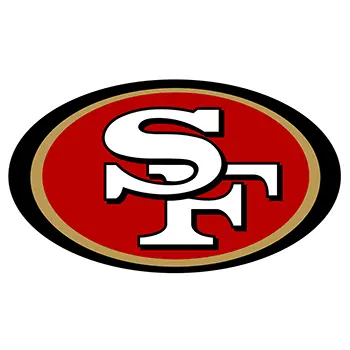 San Francisco 49ers
San Francisco 49ers
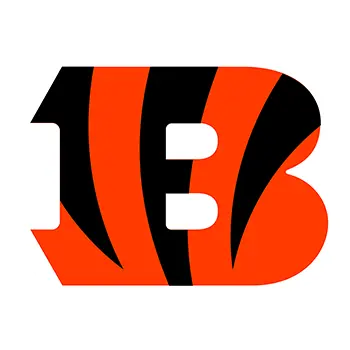 21
21
A new Super Bowl era was born in Super Bowl XVI, when Joe Montana and the 49ers let their presence be known in an intense battle with the Cincinnati Bengals. The tightest Super Bowl betting line at this point in league history had the Niners (-1) enter as the slimmest of favorites.
San Francisco had been dominant during a 13-3 regular season run, but Vegas saw Super Bowl XVI as too close to emphatically call, with an equally impressive 12-4 Bengals team on the other side. The oddsmakers weren’t that far off when it came to the score and the 49ers did end up covering, but this was a game the 49ers had in control from the start.
Cincinnati actually became the first Super Bowl loser to gain more yards than the winner, but three early turnovers put Ken Anderson and co. in a 20-0 half-time hole they would never recover from. Anderson rallied the Bengals late (down just 20-14 early in the fourth quarter), but two 49ers field goals ultimately iced Super Bowl XVI.
Ken Anderson put up strong numbers and was arguably the Super Bowl MVP in a game Joe Montana “managed” more than anything, but it would be “Joe Cool” that emerged as the Super Bowl XVI Most Valuable Player.
- Date: January 24, 1982
- Attendance: 81,270
- Location: Pontiac Silverdome in Pontiac, Michigan
- Super Bowl MVP: Joe Montana, QB, 49ers (157 passing yards, 1 TD)
 Washington Redskins
Washington Redskins
 17
17
While the 49ers kicked off an era many won’t soon forget the year before, the Redskins did the same in a 1983 win over the Miami Dolphins. Returning to the league’s big game for just the second time, Washington staged the second Super Bowl upset within a three-year window, while nabbing the franchise’s first ever world title.
Miami came into Super Bowl XVII as the 3-point favorites after going 7-2 in a season shortened by an NFL player strike. Washington was even, better, posting an 8-1 record and coming in with the memory of a 14-7 Super Bowl loss to these very Dolphins back in Super Bowl VII.
Vegas liked Miami’s Super Bowl odds with the legendary Don Shula still calling the shots (2-time Super Bowl champion), as the Dolphins head coach was appearing in his fourth Super Bowl with the team. Shula’s presence was felt initially, as Miami jumped out to a 17-10 lead at the break and looked to be in complete control.
Miami’s hold on Super Bowl XVII wouldn’t last, as the Redskins leaned hard on veteran running back John Riggins, who rushed for a Super Bowl-record 166 rushing yards on a record 38 carries. The Redskins broke another rushing record as a team, dominating the Miami defense on the ground with a record 276 rushing yards. Washington’s defense played their part, as well, as they shut the Dolphins out in the second half to help preserve a 27-17 win. Riggins was fittingly named Super Bowl MVP, as the Redskins earned their first world title under legendary head coach, Joe Gibbs.
- Date: January 30, 1983
- Attendance: 103,667
- Location: Rose Bowl in Pasadena, California
- Super Bowl MVP: John Riggins, RB, Redskins (166 rushing yards, 1 TD)
 Los Angeles Raiders
Los Angeles Raiders
 9
9
The Redskins weren’t quite so lucky in the 1983 Super Bowl, as they fell remarkably short of a far better Raiders team in a devastating 38-9 blowout loss. Super Bowl XVIII still marked the third title game appearance for Washington, while getting back to the Super Bowl for a second straight season was an accomplishment by itself.
Despite the Redskins being favored by three points, this one was all Los Angeles from the very beginning. Due to the favored Redskins losing and the Raiders being dressed in black, this is the second Super Bowl to earn the “Black Sunday” moniker. The 14-2 Redskins simply didn’t show up, as the 12-4 Raiders forced turnovers early and rode an impressive 191-yard performance from running back Marcus Allen.
The Redskins coughed up three turnovers on the day, including a blocked punt for a score in the first quarter, which ended up setting the tone for Super Bowl XVIII. The game was already well out of hand by the time its most memorable play happened – a 74-yard touchdown jaunt by Allen.
- Date: January 22, 1984
- Attendance: 72,920
- Location: Tampa Bay Stadium in Tampa Bay, Florida
- Super Bowl MVP: Marcus Allen, RB, Raiders (191 rushing yards, 2 TDs)
 San Francisco 49ers
San Francisco 49ers
 16
16
Joe Montana and the 49ers sat out of the Super Bowl discussion for two years before reappearing in the NFL’s big game, when they took on Dan Marino and the Dolphins in Super Bowl XIX. The 49ers got a rare advantage going into the big game, as Super Bowl XIX was hosted by Stanford Stadium, which is just 30 miles from where the 49ers played their home games.
Marino’s Dolphins entered as +3.5 underdogs, but looked like an imposing matchup due to an elite offense and an impressive 14-2 run through the regular season. The 49ers looked even better on paper, however, as they came into Super Bowl XIX as the first 15-1 team since the league switched to a 16-game schedule.
Super Bowl XIX was especially hyped due to the high level of play under center, and it initially lived up to the hype, with Miami jumping out to a 10-7 lead in the first quarter. It was all San Francisco from there, however, as the 49ers piled on 21 points in the second stanza and held a commanding 28-16 lead at the break. Miami wouldn’t score again, as the Niners added 10 more points in the third quarter and held on for the 38-16 win.
As strong as San Francisco’s offense was, their defense was even more impressive in their second Super Bowl win. The prolific Dan Marino managed just one touchdown and tossed two interceptions in what would go down as his only appearance in the Super Bowl during an illustrious Hall of Fame career.
- Date: January 20, 1985
- Attendance: 84,059
- Location: Stanford Stadium in Stanford, California
- Super Bowl MVP: Joe Montana, QB, 49ers (331 passing yards, 3 TDs)
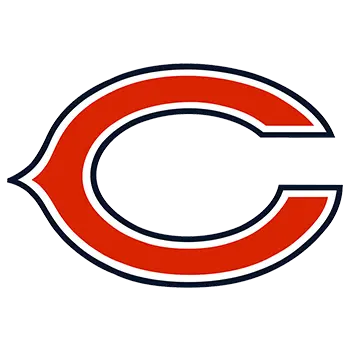 Chicago Bears
Chicago Bears
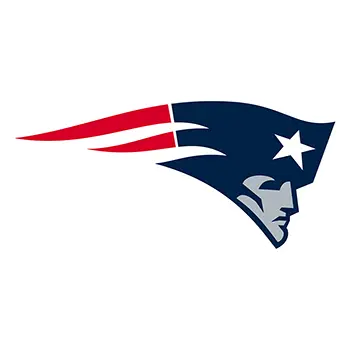 10
10
Arguably the greatest defense in league history graced Super Bowl XX, when Mike Ditka’s 15-1 Bears entered Super Bowl XX against the New England Patriots. Chicago was the obvious favorite, as Vegas spotted the Bears a -10 spread in a game where both Chicago and New England were appearing in the Super Bowl for the first time.
The Bears acted like they’d been to the Super Bowl before almost immediately, as their defense gave up a field goal in the first quarter, but eventually drove the Patriots into the ground – allowing a remarkable -19 total yards in the first half. Chicago took a 26-3 lead into the break and ran away with the game from there, winning 46-10.
Super Bowl XX ended up being the second biggest blowout in Super Bowl history at the time and topped the game’s previous scoring record (38) by eight points. Chicago’s defense was utterly dominant, giving up just one converted third down to the Patriots on the day, while racking up six turnovers. In addition, New England totaled seven yards rushing in the loss.
Super Bowl XX wasn’t just about domination. It was also the culmination of a unique team that was full of personalities. Their “Super Bowl Shuffle” video arguably perfectly illustrates that.
As for the actual Super Bowl, one of the long-lasting moments that NFL fans won’t soon forget is a short touchdown plunge by defensive tackle, Williams “The Refrigerator” Perry. His score put the game completely out of hand at 44-3 in the third quarter.
- Date: January 26, 1986
- Attendance: 73,818
- Location: Louisiana Superdome in New Orleans, Louisiana
- Super Bowl MVP: Richard Dent, DE, Bears (1.5 sacks, 2 forced fumbles)
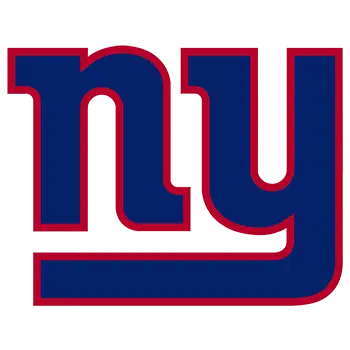 New York Giants
New York Giants
 20
20
The NFC continued its new-found dominance in Super Bowl XXI, when legendary head coach Bill Parcells helped get the New York Giants to their first Super Bowl. New York entered as large -9.5 favorites, while hot shot quarterback John Elway led the Broncos, who were making their second ever trip to the big game.
Despite being big underdogs, the Broncos were solid in the AFC, going 11-5 and leaning on an elite defense and the clutch play of the young Elway. New York was the easy favorite, of course, as Phil Simms and company rode to an easy 14-2 record during the regular season and gave up a total of three points during the playoffs.
The Giants were the better team on paper, but the Broncos gave Vegas a scare early, as John Elway scored on the ground en route to a tight 10-9 Broncos lead at half-time. It was all G-Men from there, however, as the Giants stifled Elway and Denver’s offense in a deciding third quarter that put the Giants up, 26-10. New York scored again early in the fourth quarter to go up 33-10 and never looked back in what ended up being a relatively easy 39-20 win.
John Elway actually played a solid game and helped the Denver offense move the ball surprisingly well against a vaunted Giants defense, but a bad third quarter doomed the Broncos. Phil Simms was borderline flawless on the other side, as well, as he completed 22 of 25 passes for a blistering 150.9 quarterback rating.
- Date: January 25, 1987
- Attendance: 101,063
- Location: Rose Bowl Stadium in Pasadena, California
- Super Bowl MVP: Phil Simms, QB, Giants (268 passing yards, 3 TDs)
 Washington Redskins
Washington Redskins
 10
10
John Elway and the Broncos sought revenge in 1987, as they made it back to the Super Bowl for the second year in a row behind a 10-4-1 record in a one-game strike-shortened season. The Broncos came into Super Bowl XXII as 3-point favorites, only to get destroyed by the Redskins, who were appearing in their second Super Bowl under head coach Joe Gibbs (4th overall).
Denver struck first and had Vegas looking smart at first, as they held a 10-0 lead after the first quarter. The game ended quickly after that, unfortunately, as the Redskins produced a Super Bowl record 35 points in the second quarter. The third quarter explosion came entirely from Washington’s offense, which produced three 50+ yard scoring plays and got four passing scores out of former backup, Doug Williams.
On top of Washington’s third quarter barrage and a 42-10 blowout win, the Redskins provided NFL fans with the biggest comeback (down 10 points) in Super Bowl history. Doug Williams – also the first African American quarterback to win a Super Bowl – ended the game with 340 yards and four scores en route to a deserving Super Bowl MVP award.
- Date: January 31, 1988
- Attendance: 73,302
- Location: Jack Murphy Stadium in San Diego, California
- Super Bowl MVP: Doug Williams, QB, Redskins (340 passing yards, 4 TDs)
 San Francisco 49ers
San Francisco 49ers
 16
16
Joe Montana and his Niners returned to the promised land for the 1989 Super Bowl, where they took on the Cincinnati Bengals in a rematch of Super Bowl XVI. San Francisco came into Super Bowl XXIII as the clear 7-point favorite, as they had taken down the Bengals a few years prior and sported one of the best passers in the game.
While the obvious favorites, the Niners didn’t look unbeatable at 10-6, while the Bengals were more successful at 12-4 and had a dangerous offense that featured Boomer Esiason, Ickey Woods and Chris Collinsworth. The 49ers held that offense largely in check, of course, allowing it to produce just 16 points.
Those 16 points were nearly enough, as Cincinnati made enough plays on both sides of the ball to take a 16-13 lead deep into the fourth quarter. A huge upset was on the horizon, but a three-point lead instead created one of the greatest moments in Super Bowl history. The man known as “Joe Cool” famously pointed out comedic actor John Candy in the crowd and proceeded to march the 49ers 92 yards in 11 plays, capping the drive with a game-winning touchdown to wide receiver John Taylor with just 34 seconds to go.
Bengals fans surely disagree, but the intense competition and late-game heroics easilymakes Super Bowl XXIII one of the best games in Super Bowl histor.
- Date: January 22, 1989
- Attendance: 75,129
- Location: Joe Robbie Stadium in Miami, Florida
- Super Bowl MVP: Jerry Rice, WR, 49ers (11 receptions, 215 receiving yards, 1 TD)
 San Francisco 49ers
San Francisco 49ers
 10
10
The 49ers (14-2) completed the league’s second obvious dynasty (Steelers were the first) in the 1990 Super Bowl, when Joe Montana and co. repeated as champions in a blowout of the 11-5 Denver Broncos.
Montana was involved in yet another elite quarterback duel, with John Elway on the other side and back in the Super Bowl for the third time in his brilliant career. Elway never stood a chance in Super Bowl XXIV, sadly, as the Broncos didn’t score a touchdown until the third quarter in a 55-10 drubbing.
San Francisco entered as huge 12-point favorites in Super Bowl XXIV and certainly looked the part, as they stormed to a 27-3 half-time lead. The 49ers continue to pour on the points, as they ran to a 41-3 lead before Denver finally found the endzone. The Niners were thoroughly dominant on both sides of the ball, as the offense produced seven scores in a Super Bowl-record 55-point barrage. The defense was just as impressive, however, limiting John Elway to just 108 yards passing and forcing four total turnovers.
In a game that was really never close, the story was the connection between Joe Montana and Jerry Rice. Rice was unstoppable for the second title game in a row, as he ripped off 148 yards and three scores on seven receptions. Montana was flat out dealing en route to five passing touchdowns and another Super Bowl MVP award.
- Date: January 28, 1990
- Attendance: 72,919
- Location: Louisiana Superdome in New Orleans, Louisiana
- Super Bowl MVP: Joe Montana, QB, 49ers (297 passing yards, 5 TDs)
 New York Giants
New York Giants
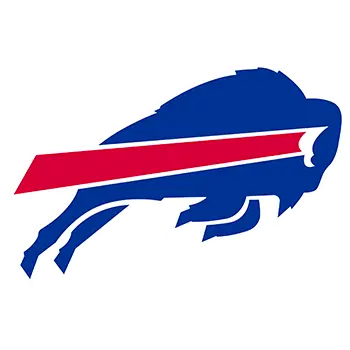 19
19
Super Bowl XXV still stands as one of the most competitive in Super Bowl history, and is the only Super Bowl to be decided by just one point. The Buffalo Bills came into Super Bowl Sunday as 7-point favorites and were in position to win late, but kicker Scott Norwood went wide right on a 47-yard field goal that would have won the game.
While many choose to make Super Bowl XXV about Norwood’s miss, doing so takes away from what may be the best NFL title game in Super Bowl history. The 13-3 Bills ran an impressive offense and met their match in the 13-3 Giants, who thrived on a balanced offense and stingy defense.
Neither side buckled and there were zero turnovers in a game that was all about execution. Buffalo struck early with a 12-3 lead, and due to their dominant offense, were able to stave off the Giants with a 12-10 lead at the break. New York stepper their game up with a third quarter score, however, giving them a 17-12 lead. The Bills responded with a touchdown to take back the lead (19-17) on a Thurman Thomas touchdown run in the fourth quarter, only to have a Giants field goal take the lead back.
Bills running back Thurman Thomas would have undoubtedly been the Super Bowl MVP (that, or Scott Norwood) had the Bills won, as he controlled the game with 190 total yards from scrimmage. Norwood’s last-second kick did indeed miss, however, which handed the Giants their second Super Bowl win under Bill Parcells and sparked a four-year Super Bowl run for Buffalo.
- Date: January 27, 1991
- Attendance: 73,813
- Location: Tampa Bay Stadium in Tampa Bay, Florida
- Super Bowl MVP: Ottis Anderson, RB, Giants (102 rushing yards, 1 TD)
 Washington Redskins
Washington Redskins
 24
24
After being left heartbroken in the previous year’s Super Bowl, Jim Kelly and the Buffalo Bills regrouped and charged into XXVI, giving themselves a chance at immediate redemption. Despite playing in the Super Bowl and almost winning the year before, the Bills (13-3) still approached Super Bowl XXVI as 7-point underdogs to the 14-2 Washington Redskins.
The Redskins, led by quarterback Mark Rypien, were the best offense in the league (485 points) during the 1991 regular season and were shooting for their third Super Bowl win under Joe Gibbs. That proved to be a serious problem for the Bills, who endured one of the league’s worst defenses.
That discrepancy was extremely evident early on, as the Redskins poured on 24 unanswered points after neither team managed to score in the first quarter. Washington was up 24-0 before Buffalo finally managed a field goal in the third quarter, while the Redskins kept adding points and led 31-10 after three quarters. The Redskins would add one more field goal to go up 37-10, before the Bills generated two late scores.
The score made Super Bowl XXVI a little more palatable, but this was a one-sided affair that was thoroughly dominated by the Redskins on both ends. Mark Rypien put up solid numbers and perfectly orchestrated Washington’s balanced offense, but the real story was Washington’s defense, which picked off Jim Kelly four times.
- Date: January 26, 1992
- Attendance: 63,130
- Location: Hubert H. Humphrey Metrodome in Minneapolis, Minnesot
- Super Bowl MVP: Mark Rypien, QB, Redskins (292 passing yards, 2 TDs)
 Dallas Cowboys
Dallas Cowboys
 17
17
The Buffalo Bills put two consecutive Super Bowl defeats behind them in 1993, when they became the first team in NFL history to make it to three straight Super Bowls. Despite the feat, the 11-5 Bills entered Super Bowl XXVII as clear 6.5-point underdogs to the more impressive 13-3 Cowboys.
Buffalo fought back Vegas initially, as Thurman Thomas scored the game’s first touchdown to take a 7-0 lead. Dallas responded with two touchdowns and for a brief moment, Super Bowl XXVII looked like a good one with Dallas up, 14-10. Buffalo wouldn’t last long, however, as Troy Aikman proceeded to slay the Bills defense en route to four touchdowns and nearly 300 yards. Buffalo would never threaten, as Dallas built a comfortable 31-10 lead before the Bills found paydirt, once more.
The Bills were technically still in the game, down 31-17 after the third quarter, but the Cowboys put any doubt to rest with 21 fourth quarter points. While Aikman torched the Buffalo pass defense and earned MVP honors, All-Pro running back Emmitt Smith was arguably the catalyst for the Cowboys’ success, as he rushed for 108 yards and a score on 22 carries.
- Date: January 31, 1993
- Attendance: 98,374
- Location: Rose Bowl in Pasadena, California
- Super Bowl MVP: Troy Aikman, QB, Cowboys (273 passing yards, 4 TDs
 Dallas Cowboys
Dallas Cowboys
 13
13
The Buffalo Bills made more history ahead of Super Bowl XXVIII, as they topped their previous feat of appearing three consecutive Super Bowls with a fourth in the 1994 Super Bowl. On top of their achievement, Super Bowl XXVIII was extra interesting because it showcased a rematch of the previous year’s Super Bowl. It also marked the only time in Super Bowl history where the same two teams met in two straight Super Bowls.
Largely due to getting blown out by Dallas the previous year, the Bills understandably opened up Super Bowl XXVIII as 10.5-point underdogs in Vegas. Both teams were among the best in the league again, finishing with 12-4 records. Unlike in their previous two Super Bowls, Buffalo showed up early, controlling the game en route to a 13-6 halftime lead.
The hopes of finally winning it all were dashed early in the second half, unfortunately, as Thurman Thomas was stripped immediately and had a fumble returned for a score. Dallas tied the game (13-13) on that play and never looked back. The Cowboys turned the game in their favor with 14 points in that decisive third quarter and rode two Emmitt Smith scores to a 30-13 win and back-to-back NFL championships.
- Date: January 30, 1994
- Attendance: 72,817
- Location: Georgia Dome in Atlanta, Georgia
- Super Bowl MVP: Emmitt Smith, RB, Cowboys (132 rushing yards, 2 TDs)
 San Francisco 49ers
San Francisco 49ers
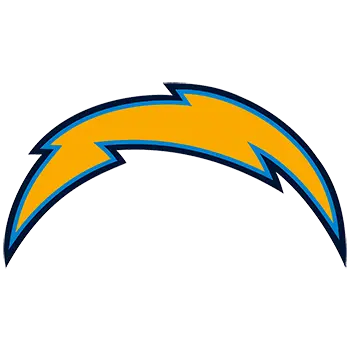 26
26
The San Francisco 49ers returned to Super Bowl relevancy in 1995 following a four-year absence from the big game. The franchise traded away Joe Montana and opted to roll with the younger Steve Young, who responded with a career year behind a 13-3 49ers record. The Niners were the class of the NFC during the 1994 regular season and met the 11-5 Chargers in Super Bowl XXIX.
There were some skeptics in regards to the left-handed Young’s ability to fully replace the departed Montana, but that doubt didn’t cloud Vegas, which backed the Niners with the biggest spread in Super Bowl history (-18.5).
A high-powered 49ers offense was up to the challenge, as San Francisco struck first with a 44-yard touchdown from Jerry Rice, and added a Ricky Watters score to go up, 14-0. Stan Humphries got the Chargers back into the game with running back Natrone Means plowing in from a yard away, but San Diego would never get that close again. Steve Young proceeded to silence all of his critics with the game of his life, as he tossed a Super Bowl record six touchdown passes during a 49-26 demolition.
San Diego helped to keep the game interesting late, as they put up 16 points in the final two quarters. The game was long over by the time they tacked on their final points, however, as the Niners had built an insurmountable 42-10 lead after the first three stanzas.
- Date: January 29, 1995
- Attendance: 74,107
- Location: Joe Robbie Stadium in Miami, Florida
- Super Bowl MVP: Steve Young, QB, 49ers (325 passing yards, 6 TDs
 Dallas Cowboys
Dallas Cowboys
 17
17
After a year away from the Super Bowl, the Dallas Cowboys (12-4) returned to the promised land when they met up with the Pittsburgh Steelers (11-5) in Super Bowl XXX. College football coach Barry Switzer took over for a departed Jimmy Johnson and went up against long-time Steelers coach, Bill Cowher, reigniting a Super Bowl rivalry. The meeting marked the third time the two sides clashed in the NFL’s biggest game.
Both sides had history on the horizon, with a shot at tying the San Francisco 49ers for most Super Bowl wins (5) on the line. Despite all of the intrigue, Vegas didn’t see this game as a close call, with Dallas sporting a -13.5 spread advantage.
The Cowboys didn’t end up making good on that spread, of course, as they opened up a convincing 13-0 lead, but allowed the Steelers back into the game. Dallas took a 20-7 lead into the final quarter, but two scoring drives by Steelers quarterback Neil O’Donnell kept Pittsburgh in the game until the final moments.
It wasn’t until the fourth quarter when the game was decided, as cornerback Larry Brown nabbed his second interception of the game to prevent the Steelers from taking the lead. Emmitt Smith plunged in for a short score with just over three minutes to go and Dallas hung on to win from there, 27-17. Brown would later be announced as the first cornerback to win Super Bowl MVP and Dallas would become the first team in league history to win the Super Bowl in three out of four seasons.
- Date: January 28, 1996
- Attendance: 76,347
- Location: Sun Devil Stadium in Tempe, Arizona
- Super Bowl MVP: Larry Brown, CB, Cowboys (2 interceptions)
 Green Bay Packers
Green Bay Packers
 21
21
The first NFL team to ever win a Super Bowl finally made it back to the big game in 1997, as young gunslinger Brett Favre pushed the Packers to a 13-3 record and their first Super Bowl appearance in 30 years. Green Bay faced off with the 13-3 Patriots, who like the Packers rose from the ashes with former champion Bill Parcells at the helm.
Super Bowl XXXI favored Green Bay by a whopping 14 points, which ultimately provided a push due to the 35-21 Packers win. The game was wide open throughout, however, as the Patriots rushed out to a 14-10 lead in the first quarter. Green Bay did respond with a 17-point second quarter to take a convincing 27-14 lead at the break, but Drew Bledsoe led one last scoring drive that put heat on the Packers and got the Pats within six points.
Desmond Howard stole the show before the third quarter drew to a close, as he returned a New England kick 99 yards for a score to help the Packers go up, 35-21. Neither team would score in the final quarter, while New England managed to keep Green Bay’s offense off the scoreboard for the entire second half. The Super Bowl marked Green Bay’s third in league history and handed the Patriots their second defeat in as many games.
- Date: January 26, 1997
- Attendance: 72,301
- Location: Louisiana Superdome in New Orleans, Louisiana
- Super Bowl MVP: Desmond Howard, KR, Packers (99-yard kick return TD)
 Denver Broncos
Denver Broncos
 24
24
Brett Favre brought the Packers back to the Super Bowl for the second year in a row in 1998, as Green Bay again went 13-3 and remained the class of the NFC. The Packers entered Super Bowl XXXII against an aged John Elway, who helped the 12-4 Broncos back to the league’s title game for an impressive fourth time.
Green Bay came into the Super Bowl as the easy favorites for the second year in a row, this time sporting an 11-point spread in Vegas. The Packers struck immediately with a 7-0 lead, but due to turnovers fell into a 17-7 hole. Green Bay was able to respond just before the half, cutting the Broncos lead to 17-14. Green Bay later managed to tie the game twice (17-17 and 24-24), but would never lead again.
The Broncos leaned hard on star running back Terrell Davis, who carved up Green Bay’s tiring defense to the tune of 157 rushing yards and three scores. John Elway was largely held in check through the air, but came up big late in the game with his famous helicopter dive.
Favre and the Packers drove down the field with time running out and down 31-24, but a fourth down attempt fell incomplete and Denver was crowned a Super Bowl champion for the first time in their franchise’s history.
- Date: January 25, 1998
- Attendance: 68,912
- Location: Qualcomm Stadium in San Diego, California
- Super Bowl MVP: Terrell Davis, RB, Broncos (157 rushing yards, 3 TDs)
 Denver Broncos
Denver Broncos
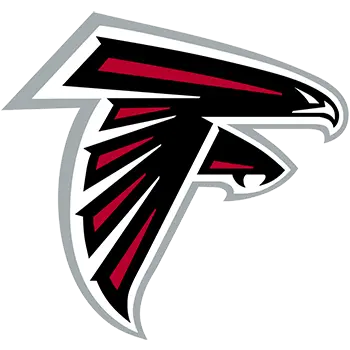 19
19
John Elway and Terrell Davis teamed up yet again in 1999, when they pushed the Broncos to a second straight Super Bowl and the franchise’s fifth, overall. Awaiting in Super Bowl XXXIII were the Atlanta Falcons, who reached the league’s title game for the first time in franchise history. Falcons head coach Dan Reeves would be taking on his former team, having coached the Broncos from 1981-1992.
Atlanta looked mighty impressive during a 14-2 run through the NFC, but Vegas backed the Broncos with a 7.5-point spread. Denver was equally impressive during the 1998 regular season, as they also went 14-2 and had won the Super Bowl the previous season.
While Denver’s previous Super Bowl win was all about running back Terrell Davis, John Elway took a much more active role in his second title, as he shredded the Falcons to the tune of 336 yards and a touchdown through the air. In what would ultimately be his final NFL game, Elway also found his way to a second score on the ground.
Atlanta was paced by stud rusher Jamal Anderson and veteran quarterback Chris Chandler, but their potent offense never took flight against a good Broncos defense. Denver stormed out to a 17-6 halftime lead and really never looked back, as they tacked on two more scores in the fourth quarter to ice the game at 31-6. Kick returner Tim Dwight offered a mild cause for pause with a 94-yard kick return for a score in the final stanza, but a Broncos field goal quieted the mild comeback and the Broncos held on for a 34-19 win.
- Date: January 31, 1999
- Attendance: 74,803
- Location: Pro Player Stadium in Miami, Florida
- Super Bowl MVP: John Elway, QB, Broncos (336 passing yards, 2 TDs)
 St. Louis Rams
St. Louis Rams
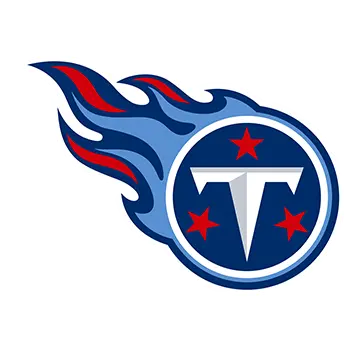 16
16
NFL fans got another instant classic in 2000, as the Rams and Titans worked together to produce a gem of a Super Bowl at the turn of the millennium. Kurt Warner went from grocery store worker to NFL quarterback in the blink of an eye, as he directed the “Greatest Show on Turf” to a 13-3 record. The Rams went into their second ever Super Bowl preparing for the Titans, who also went 13-3, but made it to the title game out of the wild card round.
Vegas spotted the Rams a 7-point spread due to their high-powered offense, and due to such a hotly contested game, that ended up making for a push. St. Louis was able to move the ball at will in Super Bowl XXXIV, but Kurt Warner and co. struggled their way to a 9-0 lead at the half.
The Titans, powered by running back Eddie George, clawed their way back into the game with their first score in the third quarter, but still trailed 16-6 going into the fourth. Tennessee tightened up defensively and held the Rams in check for much of the fourth quarter, however, which allowed the Titans to notch the score, 16-16 with just over two minutes to go. Kurt Warner quickly responded with a clutch 73-yard scoring strike to speedy receiver Isaac Bruce, which provided the final score, 23-16.
While those were the final points, the game was still set up for a classic finish, as Titans quarterback Steve McNair directed his offense down the field with under two minutes to go. As the clock ticked away, McNair found wide receiver Kevin Dyson across the field, but he was tackled one-yard away from scoring as he reached for the endzone.
Without a doubt one of the most iconic plays in any Super Bowl, the play went on to be dubbed “The Tackle” and contributed to Super Bowl XXXIV going down as one of the best Super Bowls ever. Rams linebacker Mike Jones’ clutch tackle prevented two potentially historic achievements – a team scoring on the last play of a Super Bowl and a Super Bowl going to overtime.
With the win, the Rams scored their first Super Bowl victory in franchise history, while 63-year old head coach Dick Vermeil became the oldest coach to win the big game.
- Date: January 30, 2000
- Attendance: 72,625
- Location: Georgia Dome in Atlanta, Georgia
- Super Bowl MVP: Kurt Warner, QB, Rams (414 passing yards, 2 TDs)
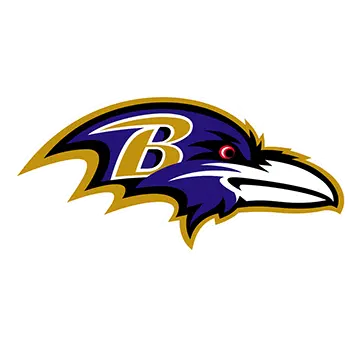 Baltimore Ravens
Baltimore Ravens
 7
7
A year after the league saw one of the most explosive offenses in history enter the big game, arguably the stingiest defense in history entered the promised land. The Baltimore Ravens, fueled by elite linebacker Ray Lewis, went 12-4 and reached their first ever Super Bowl.
Technically this is yet another Super Bowl appearance for the Baltimore Colts, but the Ravens were moved from Cleveland (formerly the Browns) and the Indianapolis Colts used to be the Baltimore Colts. It’s all very confusing, but for some reason the Colts continue to keep Baltimore’s old history and the Ravens do, as well. Sorry, Cleveland.
The Ravens were joined by the New York Giants, who went 12-4 and were playing in their fourth Super Bowl after winning their first three. Jim Fassel got New York back to the league’s title game for the first time since the team won in Super Bowl XXV. The Giants seemed like a worthy opponent after crushing a good Vikings team in the NFC title game (41-0), and Vegas responded by only favoring the Ravens with a 3-point spread.
Baltimore made good on that spread, and then some, as the Ravens struck first by scoring a touchdown in the first quarter and entering the half with a 10-0 advantage. Baltimore’s elite defense controlled the game and ultimately didn’t allow the Giants offense to score a single point. A Ron Dixon kick return for a touchdown in the third quarter represented New York’s only score of the game, which briefly gave the team life in a 17-7 game. The emphasis was certainly on briefly, however, as the Ravens returned the ensuing kickoff for their own score (Jermaine Lewis) and went up 24-7. Baltimore would tack on 10 more points in the fourth quarter, ending with a thoroughly dominant 34-7 Super Bowl win.
- Date: January 28, 2001
- Attendance: 71,921
- Location: Raymond James Stadium in Tampa Bay, Florida
- Super Bowl MVP: Ray Lewis, LB, Ravens (5 tackles, 4 pass deflections)
 New England Patriots
New England Patriots
 17
17
The 2002 Super Bowl was met with heavy hearts, as it was the Super Bowl that followed 9/11. It was only fitting that the New England Patriots would march into Super Bowl XXXVI, and after the team stormed out onto the field as “one”, it felt like the entire nation got behind them.
That wasn’t the case for Vegas prior to the game, of course, as the explosive Rams were massive -14 favorites and were fully expected to win. St. Louis was as good as ever offensively, and the “Greatest Show on Turf” was back in their third Super Bowl, seeking their second win in the last three years.
Things didn’t go quite as planned for the Rams, as they moved the ball at will but turned the ball over early and fell behind, 17-3 after three quarters. Kurt Warner and co. mounted a comeback late, however, tying the game up at 17-17 with just under two minutes to go. The tie set up late-game heroics for Tom Brady and legendary kicker Adam Vinatieri, as Brady drove the Patriots into good field position so Vinatieri could nail the game-winning 48-yard field goal as time expired.Super Bowl XXXVI had it all, as the Patriots pulled off an amazing win as a severe underdog, the favored Rams rallied to nearly force overtime, and we got our first Super Bowl that was won on the final score of the game. In addition, New England gave way to a modern day dynasty, as the Patriots won their first league title in their third try. Legendary careers for the likes of Bill Belichick and Tom Brady were created, as well.
- Date: February 3, 2002
- Attendance: 72,992
- Location: Louisiana Superdome in New Orleans, Louisiana
- Super Bowl MVP: Tom Brady, QB, Patriots (145 passing yards, 1 TD)
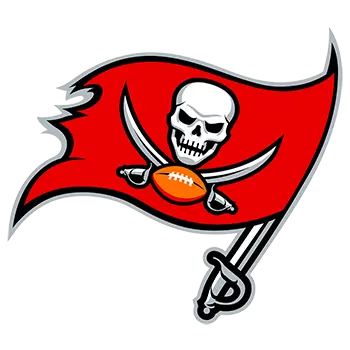 Tampa Bay Buccaneers
Tampa Bay Buccaneers
 21
21
History was made in Super Bowl XXXVII, as a constant NFL laughing stock – the Tampa Bay Buccaneers – got to and won their first Super Bowl in franchise history. Super Bowl XXXVII was especially interesting, as Jon Gruden had left the Raiders following the 2001 season and ultimately faced (and beat) the team he coached the year before.
Many great offenses and defenses had clashed in the Super Bowl to this point, but Super Bowl XXXVII made even more history, being the first championship game to produce both the #1 offense (Raiders) and #1 defense (Buccaneers) in the Super Bowl. Having nearly made it to the Super Bowl the year before, the explosive Raiders entered as the -4 favorites, only to get decimated by Tampa Bay’s unforgiving defense.
Veteran quarterback Rich Gannon suffered through arguably his worst game as a pro, as he was constantly harassed by the Buccaneers defense. Gannon was sacked five times and threw five interceptions in a game that was never really close.
Ironically, the Raiders struck first with a field goal, but quickly saw a 3-0 lead fade behind 34 unanswered points by the Buccaneers. Gannon’s turnovers contributed heavily to the massive hole, as the veteran quarterback coughed up three pick-sixes on the day. Tampa Bay built a staggering 34-3 lead before Oakland put together a mild rally in the fourth quarter. Technically back in the game with the Buccaneers up 34-21 with just over six minutes to spare, Gannon threw two straight interceptions that were returned for scores and the Raiders fell, 48-21.
- Date: January 26, 2003
- Attendance: 67,603
- Location: Qualcomm Stadium in San Diego, California
- Super Bowl MVP: Dexter Jackson, S, Buccaneers (2 interceptions)
 New England Patriots
New England Patriots
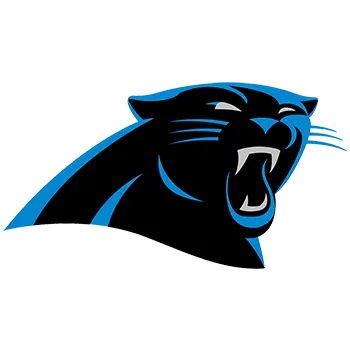 29
29
Tom Brady got the Patriots back to the Super Bowl for the second time in his career (franchise’s fourth appearance) in what would be another instant classic versus the Carolina Panthers. After winning it all just two years prior, the 14-2 Pats returned as 7-point favorites in Super Bowl XXXVIII against the 11-5 Panthers.
Carolina advanced to the first NFL title game in franchise history under head coach John Fox and the Panthers proceeded to give the Patriots all they could handle. Hailed by many as the “greatest” Super Bowl of all-time, Super Bowl XXXVIII lived up to the hype with 24 total points scored in the second quarter and a Super Bowl record 37 total points accrued in the final quarter.
Neither team could get on the scoreboard in an intense first quarter of action, while the two combined for 24 points in a matter of three minutes prior to halftime. Neither side mustered a score again in an intense third quarter, with New England nursing a 14-10 lead going into the fourth quarter. The Patriots seemed to gain control at the start of the fourth, when touchdown gave them a 21-10 lead. Carolina refused to go away, however, as they scored 12 unanswered points (two touchdowns), but failed to convert two separate 2-point conversions. Those two points ended up being quite key in the closing seconds.
New England responded with a touchdown of their own with just under three minutes to go, going up 29-22 after making good on a 2-point conversion of their own. The Panthers then tied the game with just over a minute to go (29-29), setting up one last drive for Tom Brady and the Pats.
Brady was cool and collected in the clutch, as he drove New England down the field to help set up a 41-yard field goal attempt by Adam Vinatieri. Like he did two years before, Vinatieri nailed the field goal, giving the Patriots their second Super Bowl title by just three points. The clutch kick also gave the NFL just it’s second ever Super Bowl to end with a game-deciding score.
- Date: February 1, 2004
- Attendance: 71,525
- Location: Reliant Stadium in Houston, Texas
- Super Bowl MVP: Tom Brady, QB, Patriots (354 passing yards, 3 TDs)
 New England Patriots
New England Patriots
 21
21
New England tied the Dallas Cowboys in 2005, as the only teams in league history to reach the Super Bowl three times in a four-year window. Tom Brady and the Patriots stormed through the league at 14-2 and entered Super Bowl XXXIX as 7-point favorites to repeat as world champions.
The Patriots had yet another tough challenge on their hands, of course, as the 13-3 Eagles were led by explosive duo, Donovan McNabb and Terrell Owens. This Super Bowl is famous for T.O. returning from a bad ankle injury to enjoy a huge outing (9 catches, 122 yards), as well as Eagles quarterback McNabb vomiting on the field late in the game.
While McNabb had a rough patch during this game, he was still borderline sensational at times, as he topped 350 passing yards and three scores through the air. McNabb was also at fault, however, as he turned the ball over three times in what was one of the most hotly contested title games in NFL history.
After no scoring by either side in the first quarter, both teams got the ball rolling in the third quarter and went into the break tied at 7-7. Both teams again added touchdowns in the third quarter, setting up an intense final stanza at 14-14. New England pulled away from there to prevent anymore clutch Adam Vinatieri moments, however, as they tacked on 10 more points to take a 24-14 lead late in the game.
Philadelphia added a final score to keep things interesting (24-12) with just under two minutes to go. After forcing the Patriots to punt, the Eagles had one last gasp with 46 seconds left, but saw their final drive end in McNabb’s third interception of the game.
- Date: February 6, 2005
- Attendance: 78,125
- Location: Alltel Stadium in Jacksonville, Florida
- Super Bowl MVP: Deion Branch, WR, Patriots (11 receptions, 133 receiving yards)
 Pittsburgh Steelers
Pittsburgh Steelers
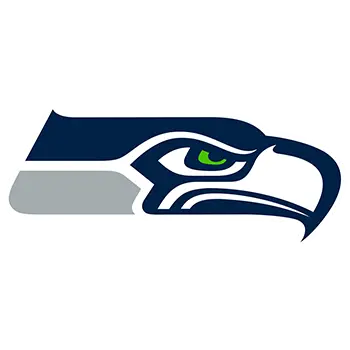 10
10
One of the most controversial NFL title games played out in Super Bowl XL, where the Seattle Seahawks reached their first title game to face the Steelers, who became the first ever #6 seed to win the big game.
The Steelers, shooting to tie the 49ers and Cowboys with their 5th Super Bowl title, entered Super Bowl XL as 4-point favorites after going 11-5 during the 2005 NFL regular season. Seattle, led by Super Bowl-winning head coach Mike Holmgren, paced the NFC with a 13-3 mark and were regarded as viable threats to snag the title.
Super Bowl XL was competitive throughout, with Seattle striking first with a 3-0 lead and the Steelers tacking on a second quarter score to lead 7-3 at the break. The game was light on scoring, but was broken open when Steelers running back popped off a 75-yard touchdown run. A 14-3 lead in the third quarter of a defensive battle seemed insurmountable, but Seattle quickly responded with a score of their own and cut Pittsburgh’s lead to 14-10 going into the final quarter.
The Steelers took back control of the game mid-way through the fourth quarter on a trick play, as wide receiver Antwaan Randle El tossed a 43-yard scoring strike to eventual Super Bowl MVP, Hines Ward. The Seahawks were unable to provide a rebuttal over the game’s final 8+ minutes and lost, 21-10.
While the Steelers emerged with the win in 2006, this game is marred by numerous questionable calls. There were some erroneous calls on both sides, but many critics felt the Seahawks specifically got the short end of the officiating stick. Of the many suggested errors, Seattle is said to have been hurt by two separate pass interference calls – one which nullified a first quarter touchdown.
Super Bowl XL certainly carries some baggage due to the questionable officiating, but the Steelers still closed out the game with bigger plays, successfully tying the Niners and Cowboys for an NFL record 5 Lombardi Trophies.
- Date: February 5, 2006
- Attendance: 68,206
- Location: Ford Field in Detroit, Michigan
- Super Bowl MVP: Hines Ward, WR, Steelers (5 receptions, 123 receiving yards, 1 TD)
 Indianapolis Colts
Indianapolis Colts
 17
17
Super Bowl XLI got the Colts back into the big game, with future Hall of Fame quarterback Peyton Manning finally reaching the league’s title game. Manning had forever been known as a prolific passer, but had continuously come up short during the playoffs. The 2007 post-season changed that, while also marking the return of the Chicago Bears in the Super Bowl. Chicago hadn’t been back to the Super Bowl since winning it all in 1985.
The Bears without a doubt had a better defense and an explosive special teams unit, but due to Manning and a high-powered offense, the Colts entered Super Bowl XLI as logical 7-point favorites. Indy ended up making good on that spread, while Manning would secure MVP honors in a Super Bowl that featured rainy conditions (the first Super Bowl with such weather).
It wasn’t all roses initially for the Colts, as Indianapolis started slowly and fell behind the Bears, 14-6. Devin Hester started Super Bowl XLI off in style, returning the opening kickoff 92 yards for a score. That return handed the Bears the fastest score to start any Super Bowl in league history (at the time), while a Rex Grossman score helped the Bears stay up by 8 after one quarter.
Rex Grossman crumbled like many expected he would from there, unfortunately, as the Bears got outscored 23-3 the rest of the way. The game was still tight throughout, as Grossman had the Bears marching and within striking distance, down 22-17 in the final quarter. Grossman couldn’t come through in the clutch, however, as he tossed his second interception of the game, which was returned 56 yards for a touchdown to give the Colts the lead for good, 29-17.
- Date: February 4, 2007
- Attendance: 74,512
- Location: Dolphin Stadium in Miami Gardens, Florida
- Super Bowl MVP: Peyton Manning, QB, Colts (247 passing yards, 1 TD)
 New York Giants
New York Giants
 14
14
The Patriots made a fierce run at history during the 2008 Super Bowl, as they marched into Super Bowl XLII as big 12-point favorites after going 16-0 during the NFL regular season. The Patriots would be appearing in their fourth Super Bowl in the Bill Belichick/Tom Brady era and sixth in franchise history.
As formidable as the Patriots looked, the New York Giants (10-6) boasted one of the league’s best defenses and knew they could hang with the Patriots after narrowly losing to them in the regular season finale, 38-35. Super Bowl XLII wouldn’t produce nearly as many points as that regular season contest, but it didn’t leave fans short on thrilling, iconic moments.
New York’s elite pass rush, fueled by Michael Strahan, racked up five sacks and held New England’s offense in check for most of the contest. New York struck first in the first quarter (3-0), with the Patriots answering in the second quarter to take a 7-3 lead into the break. Neither team managed a score in the third quarter, while the Giants scored their first touchdown of the game with just over 11 minutes to go in the game, taking a 10-7 lead.
Brady and the Patriots responded shortly after with a long scoring drive that ended with a Randy Moss touchdown catch. That score put the Patriots up 14-10 with just under three minutes to go and appeared to be the deciding score.
Eli Manning stepped up his game in the final moments, however, creating one of the greatest Super Bowl moments in history when he evaded a sack and heaved a desperation toss, which wide receiver David Tyree famously caught by pinning the ball to his helmet as he fell to the ground.
Moments later, Manning tossed a beautiful fade pass to Plaxico Burress to take a 17-14 lead. New England attempted to get into field goal position with just 34 ticks on the clock, but didn’t accrue a single yard as they turned the ball over on downs.
The Giants wins went down as arguably the biggest upset in Super Bowl history, while it gave New York their third Super Bowl title and dropped the Patriots to 3-3 in the big game. Super Bowl XLII was also historic when it came to seeding, as New York became the first #6 seed out of the NFC to win the big game.
- Date: February 3, 2008
- Attendance: 71,101
- Location: University of Phoenix Stadium in Glendale, Arizona
- Super Bowl MVP: Eli Manning, QB, Giants (255 passing yards, 2 TDs)
 Pittsburgh Steelers
Pittsburgh Steelers
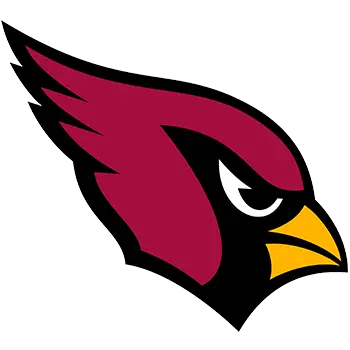 23
23
NFL fans witnessed some interesting Super Bowl history in 2009, as Kurt Warner quarterbacked his second different team to the NFL title game and also got the Arizona Cardinals to their first Super Bowl in franchise history. More history was made on the other side, as well, as the Steelers won their NFL record 6th Super Bowl.
Arizona was a surprise entrant into the Super Bowl at just 9-7, but a potent offense made them a viable contender. Vegas noted Warner’s experience and Arizona’s offensive upside and only sported Pittsburgh with a 7-point advantage in the Super Bowl betting spread. The Steelers failed to cover that spread, however, in what is without a doubt one of the better Super Bowl games in league history.
Both teams came to play in Super Bowl XLIII, as the Steelers jumped out to a 10-0 lead, only to be answered with a Cardinals touchdown and a long drive just before halftime. However, with Arizona down 10-7 and threatening to take the lead before the break, Pittsburgh linebacker James Harrison made an iconic play by intercepting Kurt Warner in the end-zone and returning the ball 100 yards to put the Steelers up, 17-7 at the half.
The game appeared to be in Pittsburgh’s control from there, as the Cardinals went scoreless in the third quarter and were staring up at a 20-7 hole going into the fourth quarter. Arizona refused to give up, however, as Kurt Warner connected with Larry Fitzgerald on two scores in the final eight minutes. Those scores, combined with an Arizona safety, gave the Cardinals a shocking 23-20 lead with just under three minutes to pare.
Ben Roethlisberger and the Steelers were not about to be outdone, of course, as they marched 78 yards on eight plays to snag the deciding score. Big Ben proved to be clutch in every way on that final drive, which ended with a beautifully placed touchdown to wide receiver, Santonio Holmes. Super Bowl XLIII did end in mild controversy, as Kurt Warner drove the Cardinals to the Steelers 44-yard line and with 15 seconds left, lost a fumble. Some fans speculated that the “fumble” was actually an incomplete pass and Arizona should have been able to keep the ball.
Regardless of any potential controversy, the Steelers ended the game in heroic fashion, claiming their 6th Lombardi Trophy.
- Date: February 1, 2009
- Attendance: 70,774
- Location: Raymond James Stadium in Tampa Bay, Florida
- Super Bowl MVP: Santonio Holmes, WR, Steelers (9 receptions, 131 receiving yards, 1 TD)
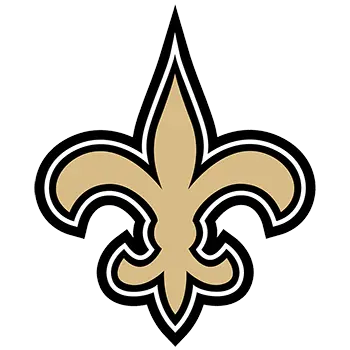 New Orleans Saints
New Orleans Saints
 17
17
Another historic moment went down in Super Bowl XLIV, as the 13-3 New Orleans Saints reached the promised land for the first time in franchise history. On the other side was future Hall of Fame quarterback Peyton Manning, who helped his 14-2 Colts get back to the Super Bowl for the second time (4th in franchise history).
Having won a Super Bowl just three seasons ago, the experienced and explosive Colts unsurprisingly entered Super Bowl XLIV as 5-point favorites. Indianapolis initially made good on their Vegas backing, as they jumped out to a 10-0 lead in the first quarter and held on for a 10-6 lead at the break.
The Saints took the game over with a surprise onside kick to start the second half, however, and immediately took a 13-10 lead. The game stayed competitive throughout the first three quarters, with the Colts taking a 17-13 lead on a short Joseph Addai touchdown run. New Orleans scored the rest of the points, however, as they added a field goal to pull within one point (17-16) to close out the third quarter, while a Jeremy Shockey touchdown catch put them ahead for good (24-17) with just over five minutes to go.
The Colts weren’t quite out of it yet, as Peyton Manning marched Indianapolis down the field on the next drive, getting all the way to the Saints’ 26-yard line with just over three minutes to go. Manning committed a fatal error, however, as Tracy Porter stepped in front of a pass and returned it 74 yards for the game’s final points and a 31-17 win.
- Date: February 7, 2010
- Attendance: 74,059
- Location: Sun Life Stadium in Miami Gardens, Florida
- Super Bowl MVP: Drew Brees, QB, Saints (288 passing yards, 2 TDs)
 Green Bay Packers
Green Bay Packers
 25
25
The Green Bay Packers got back to the Super Bowl in 2011, reaching the NFL’s championship game for the first time since 1998. Thirteen years later it was Aaron Rodgers leading the green and gold, as the 10-6 Packers advanced to Super Bowl XLV as a #6 seed wild card team.
Waiting in Super Bowl XLV were the Steelers, who went 12-4 during the 2010 regular season and made their way to a record 8th Super Bowl. The Packers entered as mild 3-point favorites, as they aimed for their fourth Lombardi Trophy and the Steelers attempted to extend their record six Super Bowl wins to seven.
It was all Green Bay to get Super Bowl XLV started, as Aaron Rodgers connected with Jordy Nelson early and Nick Collins returned a Ben Roethlisberger interception to the house for a 14-0 lead. The Packers added another score to go up 21-3 before the Steelers scored their first touchdown of the game, cutting Green Bay’s lead to 21-10 at the break.
Big Ben and the Steelers got back into the game in the third quarter, when Rashard Mendenhall scored the only points of the third quarter and sent a tight 21-17 game into the final stanza. Green Bay was unflappable, however, as they responded with a quick score early in the fourth quarter, going up, 28-17. Pittsburgh scored again on a Mike Wallace touchdown, tightening things up at 28-25, while a Mason Crosby field goal with just two minutes to go put the Steelers down six.
Ben Roethlisberger had one last chance to pull out the win, but the Packers defense held firm and forced the Steelers to turn the ball over on downs. Green Bay ran out the clock to hold on for the 31-25 win in a game in which they never trailed.
- Date: February 6, 2011
- Attendance: 103,219
- Location: Cowboys Stadium in Arlington, Texas
- Super Bowl MVP: Aaron Rodgers, QB, Packers (304 passing yards, 3 TDs)
 New York Giants
New York Giants
 17
17
Fans got a Super Bowl rematch in Super Bowl XLVI, as the Giants and Patriots both made it back to the big game to repeat the same matchup fans saw just four years earlier. New England wasn’t going for a perfect 19-0 this time around, but Tom Brady still got the Patriots through a stellar 13-3 season. New England entered Super Bowl XLVI as the ever so mild 2.5-point favorites over the 9-7 Giants.
New York went on a wild run to get to the Super Bowl and they followed it up by dominating the game early on. The Giants scored 9 points in the first quarter and held the Patriots scoreless for the first 17 minutes of the game. New England did bounce back with 10 points in the second quarter, however, as they marched into halftime with a 10-9 lead.
It looked for a brief moment as if the Patriots would exorcise their demons and take down the Giants in their second Super Bowl meeting, as Tom Brady connected with Aaron Hernandez to take a 17-9 lead in the third quarter. The Patriots wouldn’t score again, however, as New England kicked two field goals to pull within one point and then ran the ball in for a 21-17 lead with just under a minute remaining.
New England had one last gasp on their final drive, as Tom Brady hurled a Hail Mary throw down the field, which narrowly missed tight end Rob Gronkowski’s outstretched arms. The loss dropped the Patriots to 3-4 in the big game, while the Giants earned their fourth Lombardi Trophy in franchise history.
- Date: February 5, 2012
- Attendance: 68,658
- Location: Lucas Oil Stadium in Indianapolis, Indian
- Super Bowl MVP: Eli Manning, QB, Giants (296 passing yards, 1 TD)
 Baltimore Ravens
Baltimore Ravens
 31
31
The Ravens and 49ers battled it out in one of the stranger Super Bowls in league history, as two elite defenses allowed a combined 64 points. In addition, Super Bowl XLVII featured the first game where two brothers – Jim and John Harbaugh – coached against each other.
The 10-6 Ravens entered as the underdogs to the 11-4-1 49ers, who were awarded a 4-point spread by Vegas. Baltimore was able to flip the script on those Super Bowl odds, however, as they ran out to a 28-6 lead and held on for the 34-31 win.
Super Bowl XLVII wasn’t quite that cut and dry, of course. Following the 28-6 lead by the Ravens, the Superdome experienced a temporary blackout that caused a delay. Once the game resumed, the 49ers appeared revitalized and ripped off 17 unanswered points to climb back into the game.
The 49ers continued their comeback in the fourth quarter, when dual threat quarterback Colin Kaepernick ran in a 15-yard touchdown to get the Niners within two points (31-29). The score stayed that way due to a failed 2-point conversion, while the Ravens added a field goal with just over four minutes to go to give Baltimore a 34-29 lead.
Kaepernick responded with another drive, getting the Niners to Baltimore’s five-yard line before failing to convert on a final fourth down play. The Ravens proceeded to run out the clock until choosing to take a safety in the back of their endzone. Ted Ginn’s last hasp during a safety free kick went 31 yards, but didn’t end in a score. With the Baltimore win, the Ravens earned their second Super Bowl in the Ray Lewis era and also handed the 49ers their first Super Bowl loss in franchise history.
- Date: February 3, 2013
- Attendance: 71,024
- Location: Mercedes-Benz Superdome in New Orleans, Louisiana
- Super Bowl MVP: Joe Flacco, QB, Ravens (287 passing yards, 3 TDs)
 Seattle Seahawks
Seattle Seahawks
 8
8
One of the more hyped Super Bowls in league history went down in 2014, when the league’s top offense (Denver) faced off with the league’s top defense (Seattle). The Broncos entered Super Bowl XLVIII as mild 2-point favorites, and many were expecting a potential shootout between Peyton Manning and Russell Wilson.
That wasn’t to be, as Denver gave up a safety on the first play of the game (fastest score to start a Super Bowl) and fell into a 22-0 hole at halftime. Denver’s offense couldn’t get anything going for much of the first three quarters, as Seattle built an insurmountable 35-0 lead before the Broncos finally scored.
Denver’s third quarter touchdown proved to be their only score of the game, as Seattle added one more touchdown in the final quarter to complete the demolition, 43-8. Seattle made history in this one, as the Seahawks nabbed their franchise’s first ever Lombardi Trophy in just their second try, while the Seahawks also provided Super Bowl history with its widest margin of victory by an underdog.
- Date: February 2, 2014
- Attendance: 82,529
- Location: MetLife Stadium in East Rutherford, New Jersey
- Super Bowl MVP: Malcolm Smith, LB, Seahawks (9 tackles, 1 interception, 1 fumble recovery,1 TD)
 New England Patriots
New England Patriots
 24
24
Seattle aimed for a repeat in the 2015 Super Bowl, as the Seahawks went 12-4 and got back to the league’s title game for the second year in a row. Despite winning decidingly the year before and again boasting one of the best defenses in the league, the Seahawks were not favored. Instead, Super Bowl XLIX was a true “pick’em” game, with the 12-4 Patriots also not being favored.
Super Bowl XLIX lived up to its “toss up” label, as Tom Brady shredded a good Seattle secondary for over 300 yards and four scores. As good as Brady was, a win was in doubt for the Patriots for their third Super Bowl in a row. After both sides battled to a tight 14-14 tie at halftime, the game appeared to be moving in favor of Seattle, who scored 10 straight points in the third quarter to take a 24-14 lead into the final quarter.
Brady and company responded with their backs against the wall, as the Patriots mounted two 60+ yard scoring drives within the final eight minutes to take back the lead. As back and forth as the game was, Super Bowl XLIX will forever be remembered for its final play.
Seattle responded to New England’s heroic comeback with a rally of their own, as they marched all the way to the Patriots’ 1-yard line and threatened to steal the win. The Seahawks, who owed much of their success to a mashing Marshawn Lynch (102 yards on the ground) then inexplicably threw a slant pass. New England cornerback Malcolm Butler anticipated the play, as he jumped in front of the pass to intercept it. The Patriots were able to run out the clock from there, giving the Patriots a fourth Super Bowl win in their franchise’s history.
- Date: February 1, 2015
- Attendance: 70,288
- Location: University of Phoenix Stadium in Glendale, Arizona
- Super Bowl MVP: Tom Brady, QB, Patriots (328 passing yards, 4 TDs)
 Denver Broncos
Denver Broncos
 10
10
NFL fans were handed another upset special in the 2016 Super Bowl, which became the first Super Bowl to intentionally drop the roman numerals and taken on the Super Bowl 50 moniker. Super Bowl L featured a meeting between the top offense in the league (Carolina), as well as the best defense in the league (Denver).
Despite history suggesting defenses tend to win championships, Vegas sided with the 15-1 Panthers and league MVP Cam Newton. Carolina held a -5.5 advantage going into Super Bowl L, as most experts didn’t think a regressing Peyton Manning could lift the 12-4 Broncos to a title.
The experts were dead wrong, as the Broncos controlled this game throughout. Denver scored the game’s first 10 points as the Broncos defense harassed Newton and the Panthers from the very start. Carolina did keep things interesting initially, as they scored in the second quarter to cut Denver’s lead to just 13-7 at the break.
The Broncos didn’t play a pretty game on offense, but they played conservatively and allowed their defense to control the game. Denver tacked on a field goal in the third quarter to extend their lead to 16-7, while the Panthers again fought to stay in the game by adding a field goal to cut Denver’s lead to 16-10 early in the fourth quarter.
That is as close as the Panthers would ever get, as Cam Newton lost a fumble with just over three minutes to go and Denver punched in a short touchdown run to score the game’s final points.
- Date: February 7, 2016
- Attendance: 71,088
- Location: Levi’s Stadium in Santa Clara, California
- Super Bowl MVP: Von Miller, LB, Broncos (2.5 sacks)
 New England Patriots
New England Patriots
 28
28
The final score of Super Bowl 51 can be deceiving at first glance, as Tom Brady and company’s historic fifth Super Bowl title didn’t come in a tight contest. Instead, Brady and the Pats struggled mightily through the first three quarters against Dan Quinn’s fast Falcons defense, and found themselves in an unforgivable 28-3 hole late in the game.
Getting to that point was half the battle, of course, as these two offensive juggernauts took a 59.5 projected Total into Super Bowl LI, yet through the first quarter were completely scoreless on both sides.
Atlanta Falcons star running back Devonta Freeman started the scoring off with an easy touchdown run in the second quarter, while a second Falcons score followed a costly fumble by Patriots running back, LeGarrette Blount. Blount’s huge mistake led to a decreased role in New England’s offense from that point on, which later would prove to be an arguable turning point for the Pats.
Before New England could redeem themselves, of course, the onslaught by the Falcons continued, with Brady again driving the Pats deep into Atlanta’s side of the field before Brady tossed a costly interception that Robert Alford returned for a score.
Suddenly down 21-0 and facing an uphill battle, New England sucked it up and tacked on a field goal before the break. The 14-0 hole was already going to pit the Patriots against history, as to that point the largest comeback in Super Bowl history had been just 10 points.
New England received the football after the break but couldn’t muster a score, giving way to yet another Falcons touchdown and a 28-3 lead that had many thinking we were watching a blowout.
As bleak as it looked, Brady and co. dug in and got their first touchdown of the game before the end of a third quarter, while a missed Stephen Gostkowski extra point defined New England’s night to that point, leaving the game at 28-9 entering the final period.
Few figured New England could even make it a game again – let alone mount a furious comeback – but the Pats kept trucking on, halting the Falcons on their next possession due to an effective third down pass rush. New England methodically drove down the field and adding a second field goal, making Super Bowl 51 a two-score game.
New England’s top-ranked scoring defense stepped up yet again on Atlanta’s next drive, as Dont’a Hightower strip-sacked league MVP Matt Ryan, giving the Pats amazing field position. Brady led New England on their second touchdown drive and converted a two-point conversion to get the Pats back within one score.
Just like that, with over five minutes to go, a blowout turned into a battle of wits.
Atlanta responded with a nice drive – as well as an amazing reception by stud wide receiver Julio Jones – that looked to put the Falcons in field goal position. Atlanta was set up to ice the game, but a holding penalty and crucial sack pushed the Falcons out of Matt Bryant’s kicking range and forced the Falcons to punt.
Tom Brady made all the right throws and a crazy circus catch by Julian Edelman granted New England just the right amount of magic as they drove 91 yards for a score. A Brady pass to Danny Amendola on the two-point conversion tied the game up at 28-all, effectively giving NFL fans their first ever overtime thriller in Super Bowl history.
New England won the coin toss and wasted no time working their way down the field, while running back James White punched in his third score of the day to give the Pats the win in without a doubt the most chaotic Super Bowl of all-time.
History was made across the board in Super Bowl LI, with 30 total records being broken, including single-game passing yards (Brady – 466), single-game receptions (White – 14) and biggest comeback (25 points).
On top of being the largest Super Bowl comeback and first Super Bowl overtime game, New England’s unthinkable rally also went down as the first comeback in any NFL playoff game from 19+ points down after three quarters. It was a regrettable day for Falcons fans, but New England tacked on even more history, as Tom Brady and Bill Belichick nabbed their fifth Lombardi Trophies each, the most ever for a head coach and quarterback.
- Date: February 5, 2017
- Attendance: 70,807
- Location: NRG Stadium in Houston, Texas
- Super Bowl MVP: Tom Brady, QB, Patriots (466 passing yards, 2 TDs)
 Philadelphia Eagles
Philadelphia Eagles
 33
33
The 13-3 New England Patriots claimed their fifth Lombardi Trophy in dramatic fashion in Super Bowl 51 and not long into Super Bowl 52, it was apparent they’d need a similar performance to net their sixth.
Tom Brady and company were certainly up to the task, as they battled back relentlessly despite falling in an early 15-3 hole against the underdog Philadelphia Eagles (13-3).
Nick Foles led the Eagles (+4.5) to a hot start, as they put a field goal on the board to score the first points of Super Bowl 52. New England quickly responded with a score of their own, tying things up after a 67-yard drive, 3-3.
Philly took over from there, as Foles fired a 34-yard touchdown pass to Alshon Jeffery for the game’s first touchdown. The Eagles would tack on another field goal for a 15-3 lead, a margin that would end up being the largest of the game.
The Patriots had little trouble moving the ball against the vaunted Eagles defense, as they responded with two straight scoring drives. The first drive ended in a 45-yard boot from Stephen Gostkowski, with the second culminating in a 26-yard touchdown jaunt by James White.
Gostkowski’s missed extra point kept the Pats from cutting the deficit to just two points, while the Eagles created a 10-point gap right before the break. That came via an unlikely source, with Nick Foles hauling in a touchdown catch from tight end Trey Burton on a radical trick play on fourth and goal.
Eagles head coach Doug Pederson’s gutsy call to close the half not only gave the Eagles a strong lead going into halftime, but was a perfect example of how Philly approached the entire game.
New England received the kickoff after the break and wasted no time getting back into the game, as Tom Brady marched the Patriots 75 yards for a score. Brady connected with stud tight end Rob Gronkowski on a short touchdown, being sure to get his top target involved after a sluggish start in the first half.
Philly again responded, keeping New England at bay with a touchdown drive of their own. Nick Foles was majestic in the process, this time firing an impossible throw to backup running back, Corey Clement.
The score gave the Eagles a 29-19 advantage, with just over seven minutes to go in the third quarter. New England came back with another touchdown, as Tom Brady refused to quit and connected on a 26-yard dart to wide receiver Chris Hogan.
The Eagles drove again on their next possession at the start of the fourth quarter, when the game suddenly started to turn back into New England’s favor. Despite another deep drive, the Eagles stalled and were forced to settle for a 42-yard kick from Jake Elliott.
The Patriots saw a 32-26 deficit as an opportune time to strike and they did just that. Brady again carved up Philly’s defense on a 75-yard drive, which ended with Rob Gronkowski’s second touchdown reception of the night.
The Pats added the extra point for a 33-32 advantage, giving them their first lead in the game after trailing throughout the first three quarters.
The momentum had been backing the Eagles all game, and for a moment it looked as though the veteran Patriots had braved the storm and pulled out a win in the clutch.
Philadelphia wasn’t quite done just yet, as Nick Foles orchestrated yet another outstanding drive, marching 75 yards for another score. This time Foles found tight end Zach Ertz on a slant, as the veteran tight end dove into the endzone.
This crucial moment in the game was met with some scrutiny, as the NFL’s shaky catch rule was put on blast. The officials ultimately decided against overturning the call on the field and the Eagles went into the final moments with a 38-33 lead.
Tom Brady was set up for another intense Super Bowl moment, where he’d be able to put the Patriots on his back and secure another title. New England’s hopes were sadly dashed almost immediately, as Brandon Graham found a way to force a strip-sack.
The turnover proved to be New England’s first of the game and couldn’t have arrived at a more costly time, with just over two minutes to spare.
New England did manage to hold the Eagles to a field goal, however, which allowed Tom Brady one last chance with no timeouts and under a minute to go. Brady fought against Philly’s earnest defense to get the Patriots to mid-field, before a desperation heave into the endzone fell helplessly to the field.
In the end, the underdog Eagles were aggressive and opportunistic en route to the franchise’s first ever Super Bowl win. The mighty Pats played an amazing game that produced the most offensive yardage in any Super Bowl ever, while Brady was so dominant that he broke his own Super Bowl passing yardage record with 505 yards through the air.
It would be Nick Foles who would gain the notoriety, however, as the Eagles backup played near-perfect ball on his way to being named the Super Bowl MVP.
A year after the Patriots completed one of the most improbable comebacks ever, Super Bowl 52 arguably handed fans one of the best title games in history.
- Date: February 4, 2018
- Attendance: 67,612
- Location: U.S. Bank Stadium in Minneapolis, Minnesota
- Super Bowl MVP: Nick Foles, QB, Eagles (373 passing yards, 4 total touchdowns)
 New England Patriots
New England Patriots
 3
3
Following a shocking defeat in Super Bowl LII, the New England Patriots managed to bounce back to capture their record sixth Super Bowl title with a 13-3 triumph over the Los Angeles Rams in the 53rd edition of the big game.
Super Bowl LIII was quite the defensive struggle, which was a surprise considering the game featured two of the league’s most high-octane offenses. The Rams and Patriots ranked second and fourth, respectively, in the league in scoring offense during the regular season.
The game started off with a bang, as Tom Brady was intercepted on the opening drive of the game by Rams linebacker Cory Littleton on the opening drive. The Rams couldn’t get anything going offensively on the ensuing possession, though, and the teams wound up trading punts on the next few drives.
New England would eventually draw first blood with a Stephen Gostkowski 42-yard field goal with about 10 minutes to play in the first half. That would be all the scoring in the first half, though, as neither offense was able to figure out how to attack either opposing defense through the game’s first 30 minutes.
The second half began with 4 straight punts before the Rams finally equalized with a 53-yard field goal from Greg Zuerlein to cap a 10-play drive. The Rams started to find a little momentum offensively, but it would be the Patriots who would have the last laugh.
Following yet another punt – the Rams’ ninth of the game – the Patriots put together a nice 5-play drive highlighted by a 29-yard pass from Brady to Rob Gronkowski that got New England down to the Rams’ 2-yard line. Rookie rusher Sony Michel ran it in from there to score what would be the game’s only touchdown.
The Rams marched right down the field on the next possession before Jared Goff hurled up a prayer that wound up getting picked off by the Patriots’ Stephon Gilmore. New England would tack on another field goal from there to effectively put the game out of reach.
The Patriots’ sixth Super Bowl title ties them with the Pittsburgh Steelers for the most in NFL history. Bill Belichick added to his own record by winning his sixth Super Bowl, which puts him 2 ahead of Pittsburgh’s Chuck Noll on the all-time list for head coaches. Brady’s 6 titles are the most for any player, as well.
- Date: February 3, 2025
- Attendance: 70,081
- Location: Mercedes-Benz Stadium in Atlanta, Georgia
- Super Bowl MVP: Julian Edelman, WR, Patriots (10 receptions, 141 yards)
 Kansas City Chiefs
Kansas City Chiefs
 20
20
Super Bowl LIV was the first-ever postseason meeting between the Kansas City Chiefs and San Francisco 49ers. The 49ers, who finished the regular season with a record of 13-3 and the No. 1 seed in the NFC, were in search of the franchise’s sixth Super Bowl title. The Chiefs, who went 12-4 and finished with the second-best record in the AFC, were making their first Super Bowl appearance in 50 years.
Most expected a high-scoring affair with the over/under having been set at 54 points. The Chiefs attracted most of the betting interest from the general public and entered Super Bowl LIV as 1-point favorites. The game was closely-contested in the first half, and the teams entered halftime in a 10-10 deadlock.
The vaunted 49ers defense held its ground for most of the second half, as reigning league MVP Patrick Mahomes struggled to find a rhythm. The Niners forced Mahomes to throw a pair of interceptions as San Francisco built a 10-point lead halfway through the fourth quarter. The 49ers’ offense was hardly lighting it up, but opportunistic throws from Jimmy Garoppolo and a steady ground attack kept the Chiefs’ defense at bay.
Mahomes breathed life into his team when their title hopes seemed to be fading. With the Chiefs facing a third-and-15 from their own 35, Mahomes found Tyreek Hill wide open 44 yards down the field in what will wind up being the most memorable play from the game. That got Kansas City near the San Francisco red zone, and the play effectively swung the momentum entirely in the Chiefs’ favor.
Mahomes would go on to lead 3 straight touchdown drives, capped by a 38-yard score by Damien Williams that gave Kansas City an insurmountable 31-20 lead with just over a minute to play. Mahomes, who was eventually named Super Bowl MVP, became the youngest player in NFL history (24) with both a league MVP and a Super Bowl MVP trophy to his name.
- Date: February 2, 2025
- Attendance: 62,417
- Location: Hard Rock Stadium, Miami Gardens, FL
- Super Bowl MVP: Patrick Mahomes, QB, Chiefs (26-42, 286 Yards, 2 Passing TDs, 1 Rushing TD)
 Kansas City Chiefs
Kansas City Chiefs
 31
31
Super Bowl 55 was billed as one of the greatest quarterback matchups of all-time. Tom Brady made his record 10th career appearance in the Super Bowl after leading the Tampa Bay Buccaneers to the big game for the first time. Brady and the Bucs were set to square off with Patrick Mahomes and the Kansas City Chiefs, who were looking to repeat as Super Bowl champs. Tampa Bay advanced to the Super Bowl despite finishing the season as an 11-5 Wild Card. The Chiefs, meanwhile, went 14-2 and entered the postseason as the top seed in the AFC.
The Chiefs entered the game as 3-point favorites. Kansas City earned most of the attention of the general betting public, though the Bucs did attract a couple of multi-million-dollar wagers. The game was expected to be a high-scoring affair, as well, with an over/under of 56.5 points.
Unfortunately, the game itself didn’t really live up to expectations. Mahomes and Tyreek Hill absolutely demolished the Buccaneers in their regular-season meeting, but Tampa Bay’s defense was more well-prepared in this one. The Bucs’ edge-rushing tandem of Jason Pierre-Paul and Shaq Barrett were able to generate consistent pressure on Mahomes from the jump. Kansas City struggled in pass protection with both of their starting tackles out due to injury.
Meanwhile, Brady and the Bucs’ offense was methodically able to move the ball up-and-down the field against the Chiefs’ defense. Brady connected with Rob Gronkowski for a pair of first-half touchdowns to extend the lead to 14-3, while an Antonio Brown score just before halftime moved the Bucs’ advantage to 21-6 heading into the intermission.
Things got no better for the Chiefs after halftime. Mahomes was forced to run for his life on seemingly every play with Pierre-Paul and Barrett wreaking havoc on the Chiefs’ makeshift offensive line. Tampa Bay’s defense was able to keep Hill from beating them deep, which was something they failed to do in the first meeting between the teams. Leonard Fournette scored on a 27-yard scamper to give the Buccaneers a 28-9 lead early in the third quarter. A Ryan Succop field goal shortly thereafter extended the Bucs’ advantage to 31-9, which would ultimately be the final score of the game.
In the end, the Chiefs were never able to solve the Bucs’ defense. Mahomes and the Kansas City offense were held without a touchdown for the first time all season, and the Chiefs’ QB finished with the lowest passer rating of his entire career (52.3). Brady won his record seventh Super Bowl title along with his fifth career Super Bowl MVP award after finishing with 201 yards and three touchdown passes in the upset victory.
- Date: February 7, 2025
- Attendance: 25,000
- Location: Raymond James Stadium, Tampa, FL
- Super Bowl MVP: Tom Brady, QB, Buccaneers (21/29, 201 yards, 3 passing TDs)







